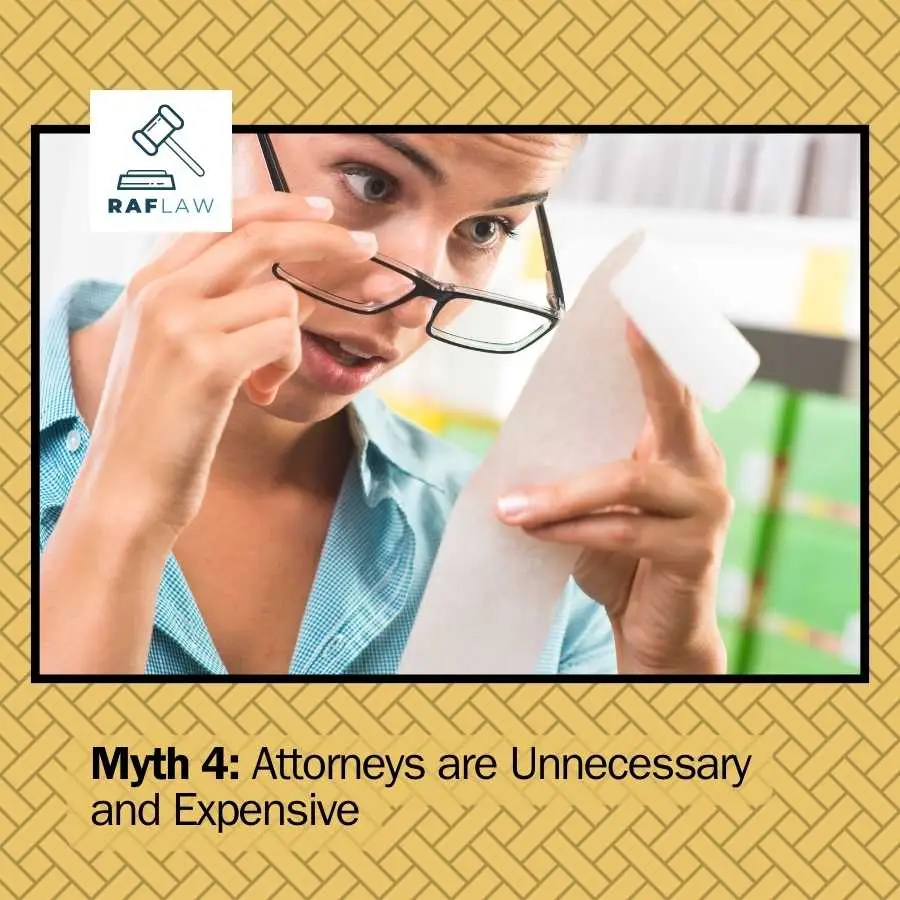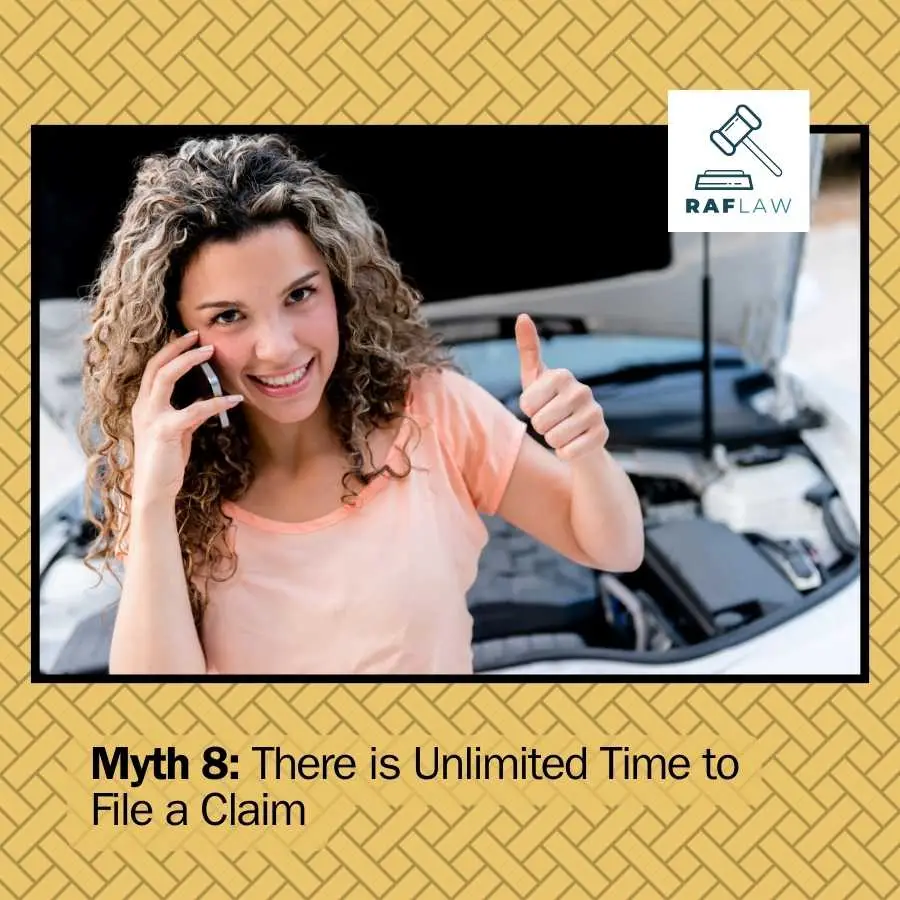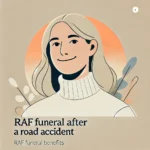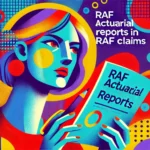Have you ever wondered what exactly the Road Accident Fund is and how it operates?
You’re not alone.
The Road Accident Fund (RAF) is a critical component of South Africa’s approach to handling the aftermath of road accidents. It’s a unique system, designed to provide crucial support to those affected by road accidents.
But with so much information floating around, it’s easy to get tangled up in misconceptions and myths about the RAF and its processes.
Understanding the Road Accident Fund
The RAF is more than just a name you hear tossed around in legal circles or insurance meetings.
It’s a public entity, established by the Road Accident Fund Act of 1996, with a clear mission: to compensate South African citizens, or anyone injured in a road accident within the country’s borders.
It’s funded by a levy on fuel, meaning that every time you fill up your car, you’re contributing to this fund. This system is in place to ensure that victims of road accidents can seek compensation for damages and injuries, even when the driver at fault cannot pay.
But, like any system that involves law, money, and personal wellbeing, the RAF can be complex and, at times, misunderstood.
Purpose of the Article
Why are we talking about this?
Because knowledge is power.
Understanding the RAF is crucial, especially if you find yourself or a loved one needing to navigate its waters after a road accident.
It’s about being prepared, informed, and confident in your approach to dealing with the aftermath of an unfortunate event.
In this article, we’re going to debunk some of the most common myths surrounding RAF claims. We aim to provide you with a clearer picture of what the RAF is, how it works, and what you can expect if you ever need to make a claim.
So, let’s dive in and separate fact from fiction.

Myth 1: I am Automatically Eligible for RAF Compensation
The Reality of Eligibility Criteria
There’s a common belief that if you’re involved in a road accident in South Africa, you’re automatically entitled to compensation from the Road Accident Fund.
But is that really the case?
Well, not exactly.
The truth is, while the RAF provides a vital safety net, it doesn’t cover every situation.
To be eligible for compensation, there are specific criteria that must be met.
Firstly, the accident must have occurred on a South African road.
Secondly, and most importantly, you need to prove that the accident was caused by another driver’s negligence. This means if you were solely responsible for the accident, the RAF might not cover you.
What if you’re partially at fault?
The RAF operates on a system of ‘apportionment of damages,’ which means compensation can be adjusted based on your share of the blame.
It’s a fair system, but it certainly isn’t as straightforward as many believe.

Myth 2: RAF Provides Unlimited Comprehensive Coverage
Understanding Covered Damages
It is commonly believed that the RAF covers all types of damages and losses.
While this sounds reassuring, it’s not entirely accurate.
The RAF does provide compensation for a range of damages, however it’s not an all-encompassing safety net.
So, what does the RAF cover? The fund mainly compensates for medical expenses, loss of income or support, and in some instances, general damages for pain and suffering.
But it’s crucial to note that the RAF does not cover property damage — so if your car is wrecked in an accident, the RAF won’t foot the bill for repairs or replacement.
Another key point is the limitation on claims for emotional trauma. Unless physical injury accompanies it, claims for emotional trauma alone are generally not successful.
In essence, while the RAF plays a significant role in helping victims of road accidents, it’s vital to have a clear understanding of what is and isn’t covered. This knowledge can help in planning additional personal or vehicle insurance to cover the gaps left by the RAF.

Myth 3: This is a Quick and Straightforward Claims Process
The Reality of Time and Complexity
It’s a common misconception that filing a claim with the Road Accident Fund is a quick and easy process.
Many believe that once the paperwork is submitted, it’s only a matter of time before the compensation rolls in.
However, the reality is quite different.
The process of claiming from the RAF can be time-consuming and complex. It involves several steps, including gathering extensive documentation, medical reports, and sometimes even navigating legal proceedings. These claims can take several years to resolve, especially in cases that involve serious injuries and substantial claims.
Moreover, bureaucratic delays and backlogs often add to the waiting time. It’s not just about submitting a form; it’s about ensuring every piece of required evidence is correctly presented.
Patience and persistence are key in navigating the RAF claims process.

Myth 4: Attorneys are Unnecessary and Expensive
The Importance of Legal Assistance
A prevailing myth is that hiring an attorney for a RAF claim is an unnecessary expense. Many people believe that the process is straightforward enough to handle on their own directly with the fund.
This myth can lead to many claimants navigating the process without legal guidance, often to their detriment.
Benefits of Hiring an Attorney
The benefits of hiring an attorney for RAF claims are significant.
A skilled attorney can navigate the complexities of the claim process, ensuring that all the necessary paperwork and evidence are properly submitted. They understand the legal nuances and can effectively argue your case, increasing the likelihood of a favourable outcome.
Legal professionals are also adept at negotiating with the RAF, especially when it comes to settlement offers. They can assess whether a settlement is fair and advise on whether to accept it or push for more.
Risks of Self-Representation
Self-representation in RAF claims carries several risks.
The biggest risk is the lack of legal expertise. Without a thorough understanding of the law and RAF procedures, claimants may miss critical aspects of their claim, leading to under-compensation or even claim rejection.
Furthermore, navigating the paperwork and legal jargon can be overwhelming for someone without legal training. Mistakes in the claim process can be costly and may significantly delay the resolution of your case.
So, while it is possible to lodge a RAF claim without an attorney, the complexity and potential pitfalls make legal assistance a wise investment.
The right lawyer can make a significant difference in the outcome of your claim, both in terms of compensation received and the time taken to resolve the claim.
Finally, there are many personal injury attorney firms who will be prepared to take on your case on a contingency (no-win no-fee) arrangement. By paying a fee proportional to your claim size and only on success, you ensure alignment of risk and reward.

Myth 5: Fair Settlements are Always Offered
Navigating Settlement Offers
A prevalent myth about the Road Accident Fund (RAF) is that it always offers fair settlements to claimants. It’s comforting to think that the RAF, as a public entity, would always have the claimant’s best interests at heart. However, the truth is a bit more complicated.
In reality, the initial settlement offer from the RAF may not always reflect the full amount you’re entitled to.
These offers are sometimes calculated conservatively, and accepting the first offer without proper evaluation might result in receiving less than what your claim is actually worth.
It’s essential to approach these offers with a critical eye. This is where having an attorney becomes invaluable. They can assess the offer, compare it with your actual damages and needs, and negotiate for a more appropriate settlement.
Remember, once you accept an offer, you waive your right to any further claims for that accident.

Myth 6: Quick Payment Follow Settlement
Delays in Receiving Payments
Another common misconception is that once a settlement agreement is reached or a court order is issued, the RAF will promptly disburse the funds.
In an ideal world, this would be the case. However, the timeline for receiving payments from the RAF can often extend far beyond the settlement date.
The Waiting Period Explained
The reality is that there’s often a significant waiting period between the time a settlement is agreed upon and when the funds are actually disbursed. T
his delay can be attributed to several factors, including administrative processes within the RAF, verification of the claim details, and the availability of funds.
In most instances, claimants will find themselves waiting for six months or even longer to receive their compensation. This waiting period can be frustrating and financially straining, especially for those who are relying on this compensation for medical treatment or to cover lost income.
Understanding this aspect of the claim process is crucial. It underscores the importance of financial planning and seeking interim solutions, like RAF bridging finance, to manage expenses while awaiting the payout.

Myth 7: RAF Payouts Equal Endless Funds
The Reality of Financial Management Post-Compensation
A common misconception about Road Accident Fund (RAF) payouts is that they provide a substantial financial windfall that will last indefinitely.
Many envision these payouts as a guaranteed route to long-term financial security. However, the reality is often starkly different.
RAF payouts are meant to cover specific losses and expenses related to the accident, such as medical costs and loss of income. While these payouts can be significant, especially in cases of severe injuries, they are not endless reservoirs of money. Without careful management, these funds can deplete faster than expected.
Importance of Investing and Saving
This brings us to the crucial aspect of financial management post-compensation. It’s essential for recipients to plan and manage their RAF payouts wisely.
Investing your RAF payout, or at least saving a portion for future expenses related to the accident can be a prudent approach. This is particularly important for those who may require ongoing medical care or who have lost their ability to earn an income as a result of the accident.
Seeking financial advice from a professional is critical.
A registered financial advisor can help structure the funds in a way that ensures long-term financial stability and growth, considering the unique needs of the individual.

Myth 8: There is Unlimited Time to File a Claim
Understanding Time Constraints
Another myth surrounding RAF claims is that there is no time limit to file a claim. This misunderstanding can lead to missed opportunities for compensation, as there are indeed specific time constraints within which a claim must be lodged.
The general rule is that a claim must be filed with the RAF within three years from the date of the accident. However, if the identity of the driver or owner of the vehicle that caused the accident is unknown (as in the case of a hit-and-run), the claim must be filed within two years.
These time limits are strict, and failing to file within these periods typically results in the claim being barred, meaning you lose the right to claim compensation. It’s crucial to start the claim process as soon as possible after the accident to ensure all the required documentation and evidence can be gathered and submitted within these timeframes.

Myth 9: RAF is for South African Citizens Only
RAF’s Coverage for All Road Users
Another common misconception about the Road Accident Fund (RAF) is that it is exclusively for South African citizens.
This myth can lead to confusion and a sense of helplessness among non-citizens who find themselves involved in road accidents within South Africa. The reality, however, is more inclusive and accommodating.
The RAF is designed to provide compensation to any individual who suffers injuries due to a road accident within the borders of South Africa, regardless of their nationality or citizenship status.
This coverage extends to tourists, foreign workers, and even undocumented immigrants. The key criterion is that the accident must have occurred on a South African road and falls under the RAF’s mandate.
This approach ensures that all road users in South Africa have some level of protection and recourse in the event of an accident.

Myth 10: Settled Claims can be Reopened
Finality of RAF Claim Settlements
Another area of misunderstanding involves the finality of RAF claim settlements. Some people believe that once a claim is settled and compensation is received, there is an option to reopen the case if additional problems or expenses arise.
However, this is usually not the case.
When a claim with the RAF is settled, whether through a settlement agreement or a court judgment, it is generally considered final.
This finality means that the claimant agrees to the settlement amount in full and final settlement of all claims arising from that particular accident.
Therefore, once you have accepted the compensation, you typically cannot go back and ask for more money at a later stage, even if your circumstances change or you incur further expenses.
This finality underscores the importance of careful consideration before accepting a settlement offer. It’s crucial to ensure that the compensation is adequate for your current and future needs related to the accident, particularly in cases involving long-term care or loss of income.
Legal advice can be invaluable in these situations, helping to assess the fairness and adequacy of the settlement offer.
Understanding these aspects of the RAF – its inclusive coverage and the finality of settlements – is essential for anyone navigating the claims process. It helps set realistic expectations and guides informed decision-making throughout the process.

Conclusion
The Importance of Being Informed
Navigating the Road Accident Fund (RAF) can be a journey filled with complexities and nuances.
As we’ve explored in this article, there are numerous myths and misconceptions about the RAF that can cloud your understanding and approach to claims. The importance of being well-informed cannot be overstated. With accurate information, you can make decisions that are not only beneficial in the short term but also advantageous in the long run.
Understanding the intricacies of the RAF, from eligibility criteria to the realities of settlement and compensation, empowers you to navigate this system with confidence.
Whether you’re a South African citizen or a foreign national, whether you’re considering hiring an attorney or proceeding on your own, knowledge is your most valuable asset. It prepares you for the journey ahead and helps you set realistic expectations.
Navigating the RAF Wisely
If you’re currently navigating a RAF claim or planning to file one, remember the importance of timely action, thorough preparation, and professional guidance.
Don’t let myths and misconceptions derail your path to rightful compensation.
Consider consulting with a legal professional who can provide personalized advice and support tailored to your unique situation. Their expertise can be instrumental in guiding you through the complexities of the RAF process.
Moreover, consider your financial planning seriously, especially when it comes to managing your compensation. Smart investment and saving strategies can ensure that your RAF payout serves its intended purpose — to aid in your recovery and help you maintain financial stability in the aftermath of a road accident.
In conclusion, as you navigate the RAF, remember that being informed and prepared is your best strategy. Approach each step of the process with knowledge, clarity, and the right support, and you’ll be well-equipped to handle the challenges that may arise.
Your journey with the RAF is significant, and how you handle it can make all the difference in achieving a fair and just outcome.
Glossary
- Road Accident Fund (RAF): A public entity in South Africa that compensates individuals injured in road accidents.
- Negligence: Failure to take proper care in doing something, leading to damage or injury to others.
- Apportionment of Damages: Determining the amount of compensation based on the degree of fault of each party involved in an accident.
- Settlement: An agreement reached between parties to resolve a claim without going to court.
- Contingency Fee: A payment to a lawyer that is contingent upon winning the case, usually a percentage of the compensation.
- Claim: A request made to an organization or government entity for compensation due to loss or injury.
- Eligibility Criteria: The conditions that must be met in order to qualify for a service or benefit.
- General Damages: Compensation for non-monetary damages such as pain, suffering, or loss of companionship.
- Claimant: The person who makes a claim or seeks compensation.
- Statute of Limitations: The time within which a claim must be filed, beyond which legal action is no longer valid.
- Legal Jargon: Specialized legal language that may be difficult for non-lawyers to understand.
- Financial Planning: The process of managing one’s finances to meet life goals and prepare for contingencies.
- Hit-and-Run: An accident where the responsible party flees the scene without providing contact information or offering help.
- Legal Representation: The act of a lawyer providing legal services to a client.
- Final Settlement: The last and conclusive agreement between parties that resolves all claims.
Frequently Asked Questions
Who is eligible for compensation from the RAF?
Anyone injured in a road accident in South Africa can claim compensation, provided they can prove the accident was caused by someone else’s negligence.
Does the RAF cover property damage?
No, the RAF compensates for personal injuries and certain damages like medical expenses and loss of income, but not for property damage.
Can I file a RAF claim without a lawyer?
Yes, you can file a claim without a lawyer, but legal assistance can significantly increase the chances of a successful and fair settlement.
How long does it take to receive compensation from the RAF?
It can take several months to years to receive compensation, with additional delays possible due to administrative processes.
Are RAF settlements always fair?
Initial RAF settlement offers may not always reflect the full value of your claim, so it’s advisable to review them carefully, possibly with legal assistance.
What happens if I miss the RAF claim deadline?
Missing the deadline, usually three years from the accident date, generally means you lose the right to claim compensation.
Can foreigners claim compensation from the RAF?
Yes, foreigners injured in road accidents in South Africa are eligible to claim compensation from the RAF.
Can I reopen my RAF claim after settlement?
Once a RAF claim is settled and you’ve accepted the compensation, it’s usually considered final and cannot be reopened.
How should I manage my RAF compensation?
It’s important to manage your RAF compensation wisely, considering long-term financial planning and possibly seeking advice from a financial advisor.






One Response
Great information